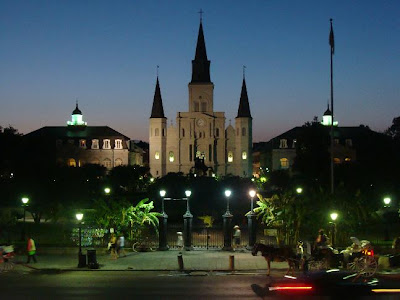For your edification, here is the second in a two-part series of photos taken during and after my recent eight-day retreat in Chicago. The first post may be found here.
If you've spent time in Chicago, you know that the city has a lot of streets that bear "honorary" names in addition to their everyday, official appellations. Appropriately and probably unsurprisingly, these two streets named for
Metropolitan Andrey Sheptytsky and
Bishop Jaroslav Gabro may be found in
Ukrainian Village.
The interior of
St. Nicholas Ukrainian Catholic Cathedral. I attended the Sunday liturgy here during my retreat and returned for Ascension Thursday.
The cornerstone of the same cathedral.
A few blocks north of St. Nicholas,
Holy Trinity Orthodox Cathedral peeks out from above the trees. I didn't step inside Holy Trinity during this retreat, but I have attended services there before and hope to do so again.
In
Rogers Park, just north of Loyola University, one finds a long and very colorful concrete bench providing a place to sit facing the beach and the Lake. Various community groups were permitted to paint different sections of the bench, but I don't know exactly who was responsible for this representation of the Chicago skyline.
In most cases, the groups responsible for painting particular sections of the bench are clearly identified. Rogers Park is a thoroughly multicultural neighborhood, so I wasn't at all surprised to learn that there are Bahá'í Children's Classes there.
The bench again. Tibetan Buddhist teacher
Chögyam Trungpa said, "Genuine art tells the truth." I'm sure that many Christian theologians would agree.
Now we're in
Edgewater, the neighborhood directly south of Loyola University. I've noticed the appealing vintage storefront of
Granville Picture Framing at the corner of North Broadway and Granville on a number of previous visits to the area; I've never done business with them, but perhaps I would if I lived here.
As you already know from the Granville Picture Framing photo, I'm interested in vintage commercial signage - which includes signs like this one for
Heileman's Old Style Beer outside an Edgewater bar.
Still in Edgewater, this is the
Indie Cafe, where I had dinner with a friend after the retreat. The Indie Cafe is a great restaurant, so I hope that you'll give it a try if you're in the area. AMDG.

























